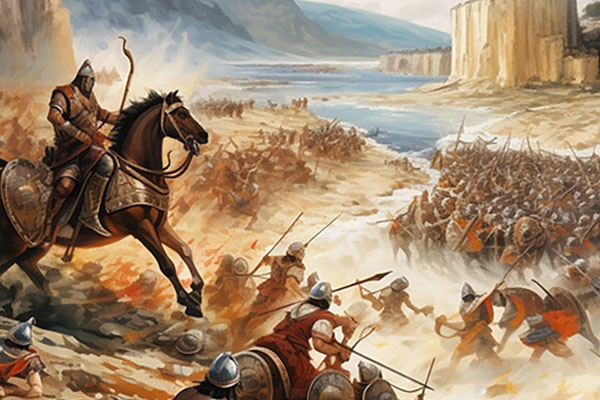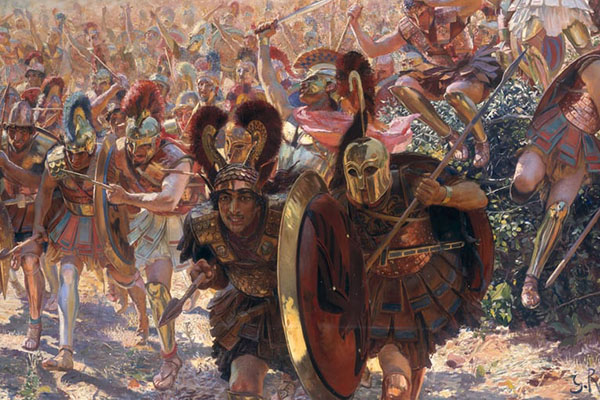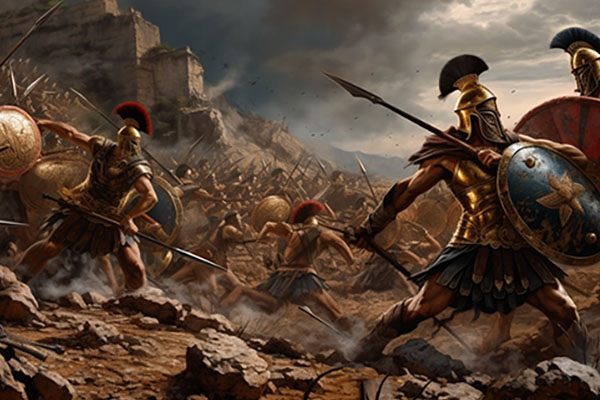The Battle of Corinth, fought in 146 BC, marked the culmination of the Roman conquest of Greece. The battle resulted in the decisive defeat of the Greek forces by the Roman Republic, leading to the destruction of the city of Corinth.
The Roman forces, led by Lucius Mummius, faced little resistance as they overran the city. In the aftermath, Corinth was sacked and its treasures were sent to Rome, while the city itself was razed to the ground. This brutal victory effectively ended Greek resistance and solidified Roman dominance over Greece.
The destruction of Corinth signified the end of Greek political independence and the beginning of a new era of Roman rule in Greece. The city's fall is remembered as a tragic but pivotal moment in Greek history, underscoring the might and determination of the Roman Republic.
| Start Date | 146 BC |
|---|---|
| End Date | 146 BC |

Did you
know?
Did you know? The sack of Corinth was so complete that the city lay in ruins for over a century before being rebuilt by Julius Caesar in 44 BC.
Wars
View allALLFurther Reading
Art &
Architecture
Ancient Greek art and architecture, with its harmonious proportions and timeless elegance, continue to inspire awe and admiration millennia later.
Discover
Greek Mythology & Mythical Characters
Greek mythology, a rich tapestry of gods, heroes, and mythical creatures, captivates the imagination with its tales of love, betrayal, and epic adventures that delve into the depths of the human psyche.
Discover
Ancient Greek History
Ancient Greek history, marked by remarkable achievements in democracy, philosophy, and warfare, shaped the foundation of Western civilization, leaving an indelible legacy of innovation and cultural influence that continues to resonate to this day.
Discover
Ancient Greek Olympics
The ancient Greek Olympics, held in Olympia every four years, celebrated athleticism, unity, and cultural pride, serving as a testament to the enduring spirit of competition and excellence that transcends time and borders.
Discover
Ancient Greek Wars
Ancient Greek wars, such as the Persian Wars and the Peloponnesian War, were pivotal conflicts that shaped the course of history, highlighting the struggle for power, independence, and the clash of civilizations in the ancient Mediterranean world.
Discover
Ancient Greek Culture and Society
Ancient Greek culture and society, characterized by its emphasis on art, philosophy, and civic engagement, fostered a vibrant intellectual and social landscape where innovation flourished, democracy thrived, and the pursuit of knowledge and excellence was celebrated as fundamental values of civilized life.
Discover


